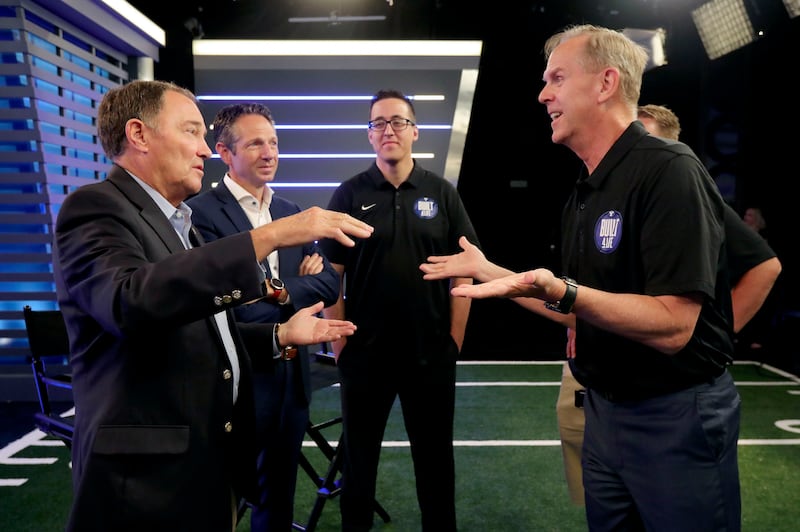It was good day to be a BYU football player on Monday, or, for that matter, a college athlete of any kind.
About the same time BYU was unveiling its newly refurbished football locker room at the Student Athlete Building on campus in Provo, the Supreme Court was issuing a unanimous ruling basically saying the NCAA’s barring of compensation for college athletes violates federal antitrust law.
“Today’s Supreme Court ruling is another element to help us adjust to the necessities of student-athlete compensation. BYU Athletics remains supportive of our student-athletes making as much money as they can in this new landscape.” — BYU athletic director Tom Holmoe
While limited in scope, Monday’s court ruling seemingly clears the way for tearing down the amateurism model that the NCAA and its member schools — including Utah, BYU and Utah State — have held almost sacred for more than 100 years. But the news was met with appreciation by BYU athletic director Tom Holmoe, who said in a statement requested by the Deseret News that the Cougars have been preparing for such a change for several years.
“Today’s Supreme Court ruling is another element to help us adjust to the necessities of student-athlete compensation,” Holmoe said. “BYU Athletics remains supportive of our student-athletes making as much money as they can in this new landscape.”
During its football media day last Thursday, BYU announced the creation of Built4Life, which it called “a wholistic career development program for BYU student-athletes that will prepare them for life beyond BYU Athletics and help them capitalize on future name, image and likeness (NIL) opportunities.”
The University of Utah launched a similar program the same day.
Monday’s ruling did not address the NIL issue, and legal scholars say the 9-0 ruling in favor of former West Virginia running back Shawne Alston is narrow in scope and cautioned against reading more into it than necessary. It was more about the NCAA unjustly limiting education-related benefits like computers and internships.
Whatever becomes of it, Holmoe believes BYU is on the forefront of preparing its student-athletes for NIL and all other compensation opportunities.
“We feel that our Built4Life program that we formally launched last week offers the wholistic support necessary to help our student-athletes (benefit from their name, image and likeness) … while receiving important career development that will benefit them beyond their time at BYU. No matter what the details of student-athlete compensation or NIL legislation look like, we are ready to fold it into our Built4Life program.”
BYU’s program has four main pillars, according to a news release issued Thursday: learn, brand, work and love.
“While many are looking at what NIL will mean for the fastest ways to get student-athletes paid, we are in this for the long haul.”
BYU officials say the program “can function” regardless of what final NIL legislation looks like, or what the Supreme Court said Monday.
Gary Veron, who worked in BYU’s compliance office the past four years, has been appointed as associate athletic director for the student-athlete experience and will oversee the Built4Life program.
“While encompassing ways to help student-athletes realize their NIL potential, (the program) is so much more than an NIL blueprint,” Veron said. “In many ways, Built4Life was created by student-athletes for student-athletes. It is a program that will continually improve as we solicit regular feedback and input from our student-athletes.”
Certainly, Monday’s Supreme Court ruling doesn’t hurt that cause.



